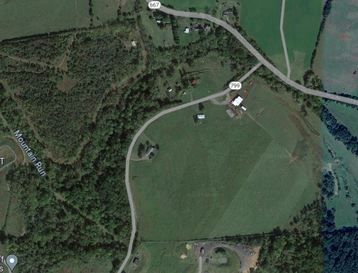Virginia's Culpeper County Board of Supervisors has tabled the Red Ace Data Center Campus application.
Also in Virginia, the Fairfax County Planning Commission has voted in favor of stricter rules for data centers.
Culpeper County Board of Supervisors tables Red Ace Data Center campus
Earlier this month, the Culpeper County Board of Supervisors voted 6-1 to table a data center campus in the Stevensburg district until the following month, reports the Culpeper Star Exponent.
The application seeks to rezone 69.19 acres from rural to light industrial with plans to develop two four-story 290,000 sq ft (26,942 sqm) data centers totaling 1.16m sq ft (148,645 sqm) as well as an electrical substation and associated equipment on land located off Nalles Mill Road and Keyser Road.
The parcel is within the boundary of the county's technology zone which was added in 2023.
East Fairfax supervisors asked what type of cooling system would be used and whether it would rely on county water. According to Red Ace’s data center consultant Michael Armm, the facility would use a closed loop system with a water and glycol mix, estimating an initial 200,000 gallons of water per building.
The data center development is not expected to be completed until at least 2028.
In terms of power, Armm said Dominion, which runs power through the parcel, would have to deal with power generation issues down the road.
“They are working on ways to address this,” said Armm. “Will there be a need for additional transmission down the road? Yes, I believe there will be... but we were told we were accounted for that new line going from Stevensburg into the town.”
Consumption will be limited by the site's substation.
Local resident Scott Mitchell said of the proposal: “You realize what a monstrosity that’s going to be on top of that hill. I cannot expect to build my home right next to town and not expect development, I’m not that stupid. I’ve lived here my whole life and know how things work around here. But a data center of all things, no, I will thwart this by any means necessary, myself and my family are dead set against it.”
Fairfax County Planning Commission votes for new rules for future data centers
Fairfax County Planning Commission has unanimously voted in favor of the rules for future data centers in the county, including that they must be at least 200 feet from residential properties, require noise studies before building, and limit their size in some circumstances.
The new rules will also require screening for data centers in all districts enclosing mechanical gear, remove the option for larger data centers in C-3, C-4, and I-4 zones if done by repurposing a building (special exception sometimes allowed), and double the distance for by-right near Metrorail stations to one mile.
Previously approved data centers will remain under the old rules.
While these are stricter than current guidelines, local residents voiced their concerns at the June 6 meeting.
“These all produce noise. Constant, stress-inducing noise,” said local resident Wendy Meeusen. “A data center is surrounded by several circles of hell as far as decibel levels go, and the closer you get the higher the decibel level, and so the more punishing the noise.”
County code currently allows data centers to be developed by right in some zoning categories, with "special-exception" approvals in some cases.
Despite this, others noted that with property taxes rising yet again, data centers are a strong contributor to their tax base.
“They add to our tax base without adding the cost of, say, lots of students in our schools, without adding the cost of additional traffic needing new roads,” said county resident William Walsh.
“In my 20 years, I have never had a project that has had a noise complaint that I’m aware of,” said Brad Gray, a resident who has designed and developed data centers. “I’m not looking for my taxes to increase. And we know that development is in shambles in Fairfax.”
The board of supervisors is scheduled to vote on the proposed rules on July 16, and none will go through without approval.







